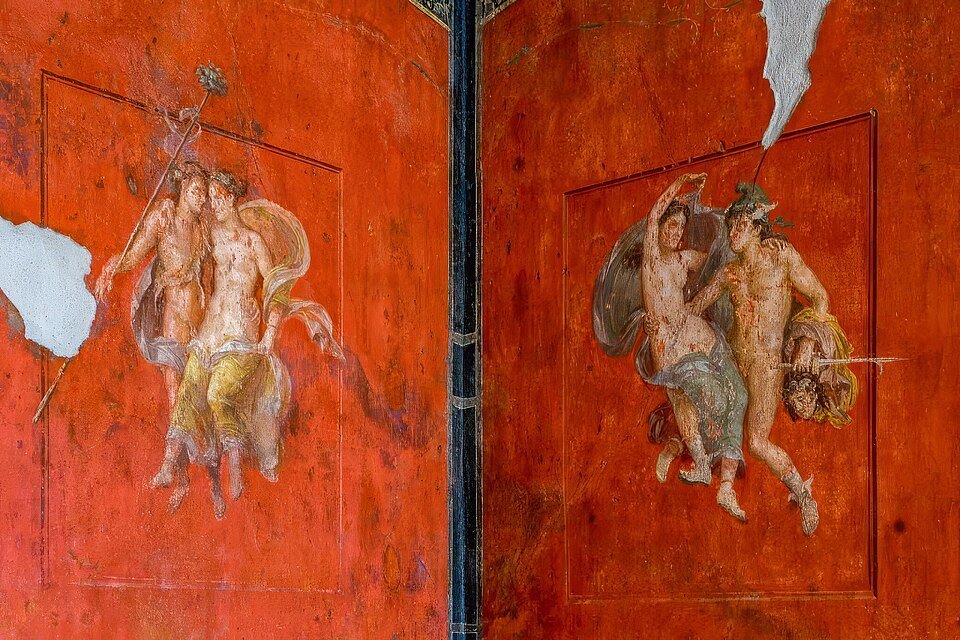Horace describes a welcome-home party for the homecoming of Numida, probably a soldier, from Spain. Horace makes it very clear that there is no shortage of drink, and that love (or sex, at least) is definitely in the offing; he himself, a little incongruously, seems more of an onlooker than a partygoer. The floating couples in the illustration come from a Pompeiian fresco. Hear the poem in the original Latin and follow in English here.
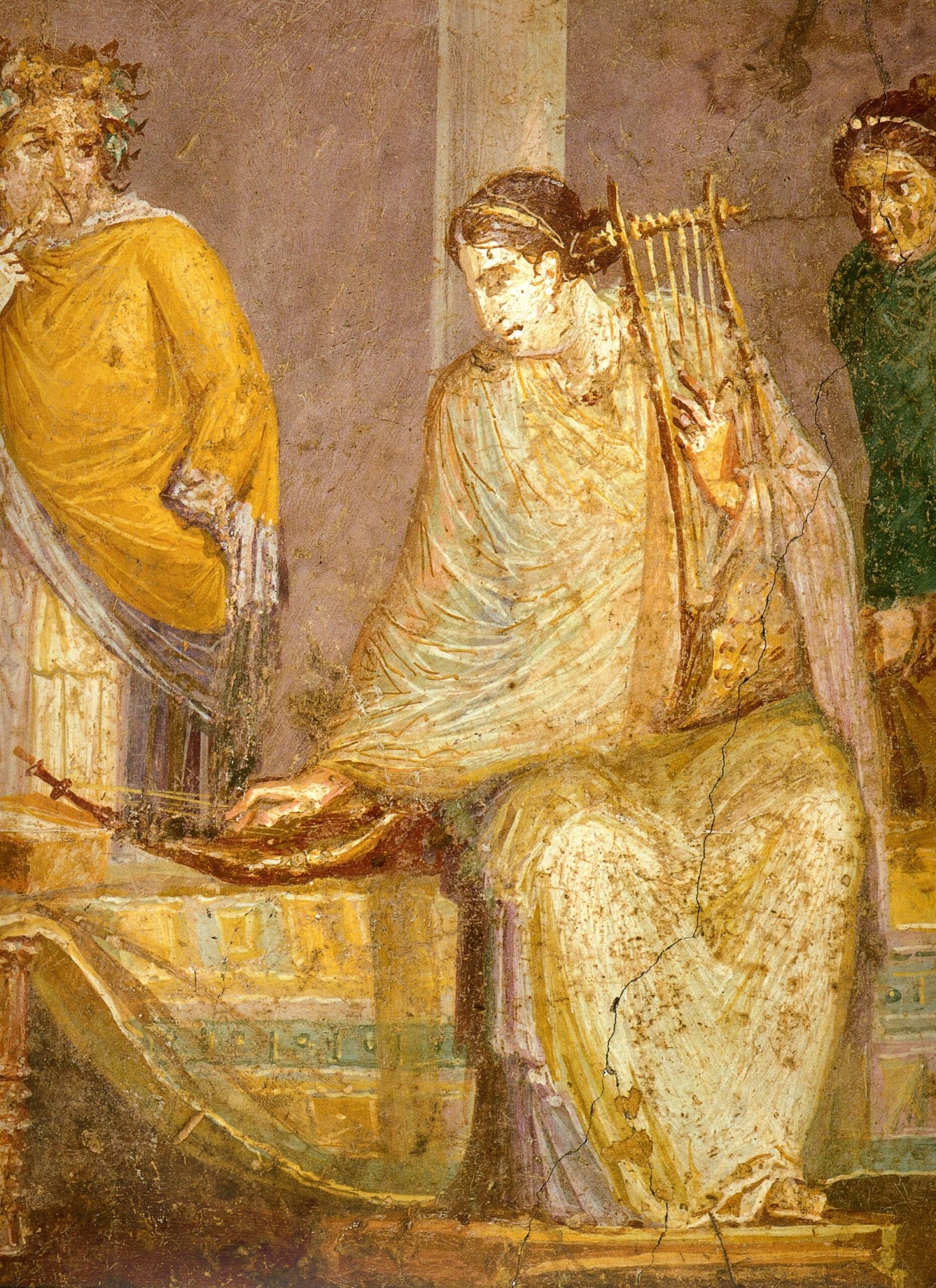
In Apollo’s newly-dedicated temple, Horace prays for the things that matter to him. The dedication has been an important public occasion, but his poem has a very personal feel, as he looks ahead to an old age to which he is resigned – provided he retains health, his mental faculties and the ability to write and enjoy poetry. Hear Horace’s original Latin and follow in English here.
In the illustration , a fresco from Pompeii, a cithara player cradles her instrument.
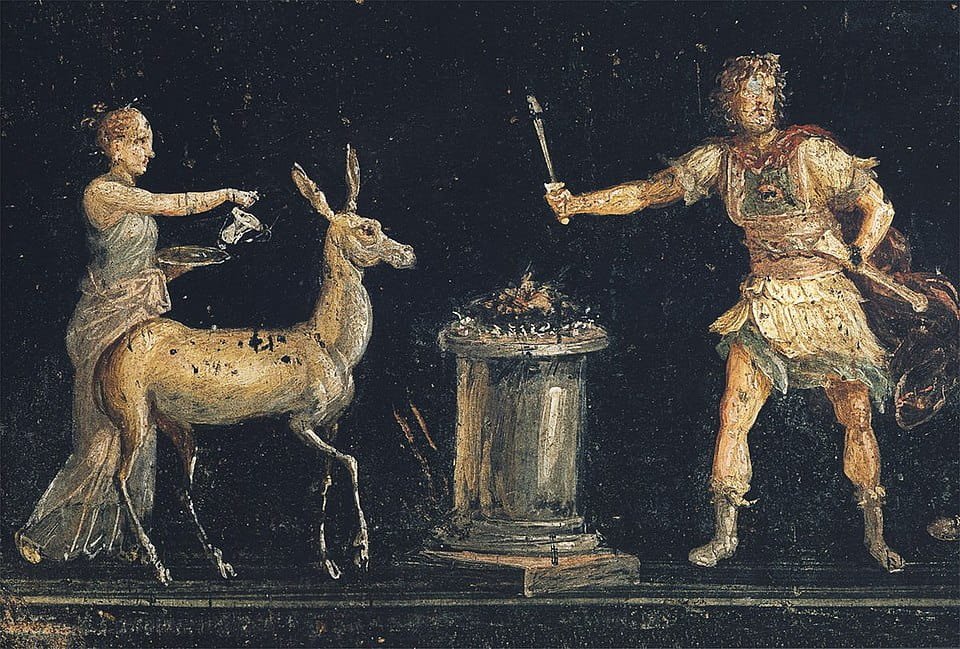
Diana and Apollo, brother and sister, were both associated with the bow; Diana as Goddess of the hunt, Apollo because he could be the bringer of sickness and death, an attribute with which he appears at the opening of Homer’s Iliad when the Greek leaders refuse to restore his priest’s daughter to her father. Octavian, the future Emperor Augustus, dedicated a temple to Apollo in 28 BCE, which very likely prompted this piece; Horace might well also have felt a particular affinity with Apollo as the God of Poetry. The illustration shows a sacrifice to Diana from the House of the Vetti at Pompeii. Hear Horace’s Latin and follow in English here.

In an ode in which Horace is referencing a poem by Alcaeus, one of his most revered early Greek models, he not only commends wine – in moderation – but also reminds us of its dangers. As an example, he gives the wedding of the legendary hero and friend of Theseus, Pirithous, at which the centaurs who had been invited got drunk and molested the bride, triggering a pitched battle.
Hear Horace’s Latin and follow in English here.

In a piece which seems to have been written at a dangerous point some years before Horace launched his first three books of odes in 23 BCE, he turns for help to the Goddess Fortuna, while recognising that the fortunes that she has in store for Rome after a long period of civil wars could be bad as well as good. This ode seems as deeply and personally felt as any that Horace wrote, and is surely no mere literary exercise.
In the illustration, from a mediaeval manuscript of the Carmina Burana, Fortuna governs the cycle of life.
Hear Horace’s Latin and follow in English here.
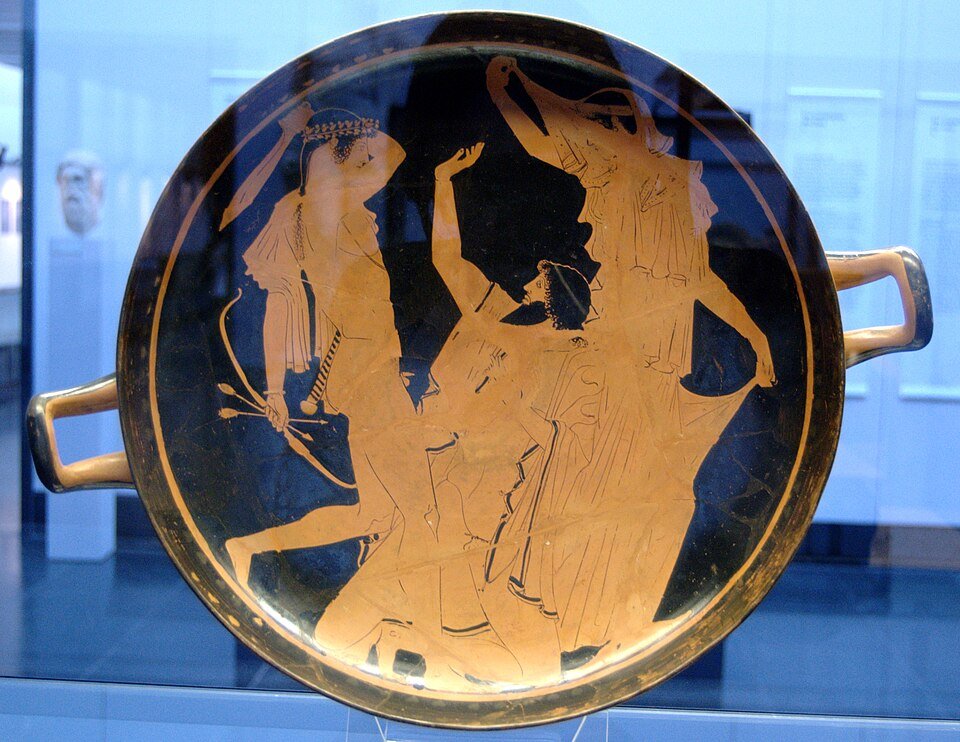
In Horace’s ode, Apollo threatens his brother, Mercury, with dire consequences if he does not return his herd of stolen cattle. How does the trickster-God respond? By stealing Apollo’s quiver! Hear Horace’s Latin and follow in English here.
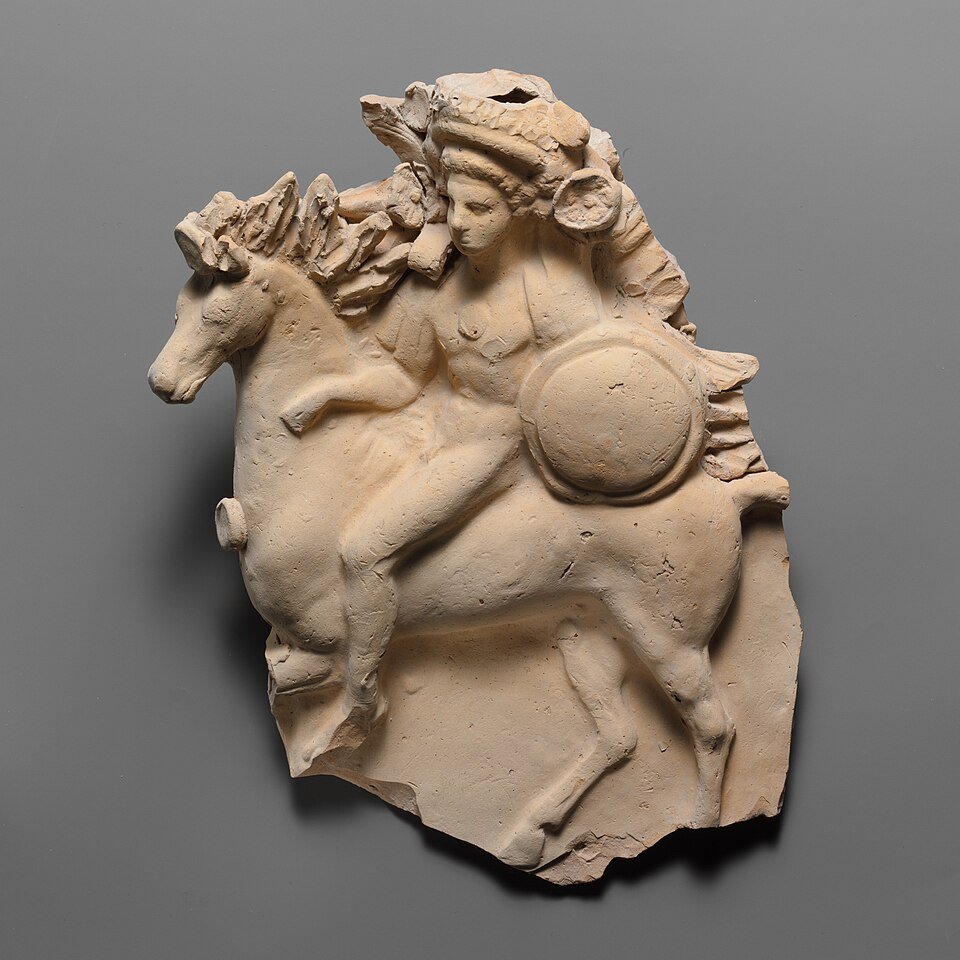
Horace is concerned that such a promising young cavalryman as Sybaris should be neglecting his trade because of a girl. Hear his complaint to her in Horace’s original Latin here.
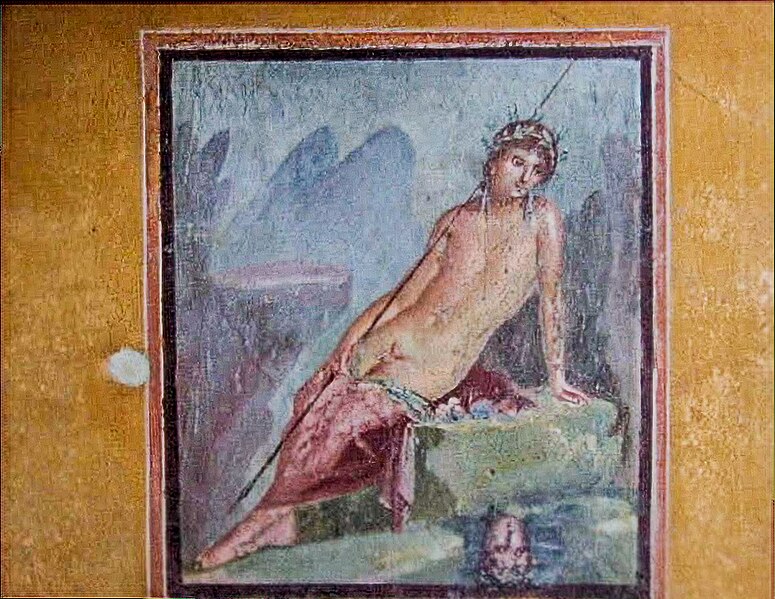
In philosophical mood, Horace advises a friend whose lover has left him for a younger man not to dwell on his woes. Love is often unrequited, and that is the way that Venus, who has a sense of humour, likes it. Hear Horace’s Latin and follow in English here. In the illustration Narcissus, with whom the nymph Echo is in love, has fallen for his own reflection in the water.
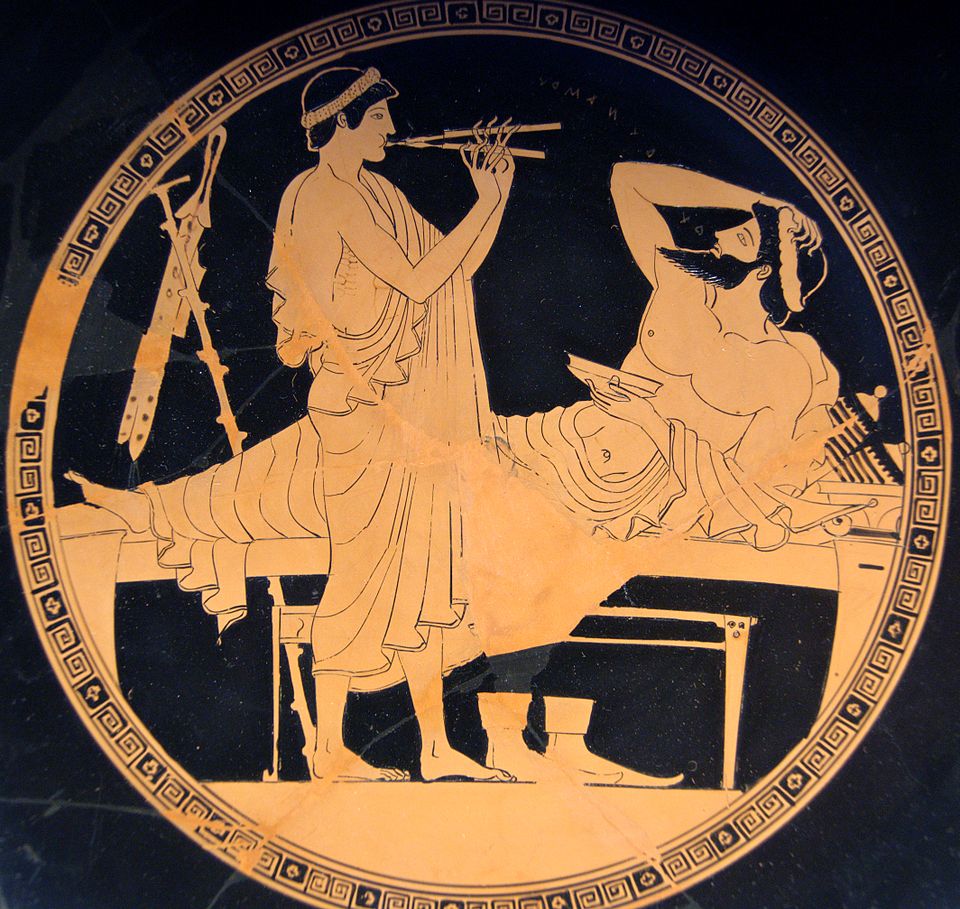
In a compliment to the eminent general and politician L Munatius Plancus, Horace celebrates Tibur, which seems to have been his home, likens him flatteringly to the legendary hero Teucer, and reflects on the consolation available from wine in both mythical and contemporary times.
Hear Horace’s Latin and follow in English here.
